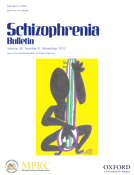
NEUROPSYCHOBIOLOGY
Scope & Guideline
Transforming Understanding: The Intersection of Neuroscience and Psychology
Introduction
Aims and Scopes
- Neurobiological Mechanisms of Mental Disorders:
Investigating the neurobiological correlates of various mental disorders, including mood disorders, schizophrenia, and substance use disorders, focusing on neurotransmitter systems, neuroinflammation, and neuroplasticity. - Psychobiological Interventions:
Exploring the efficacy of psychobiological interventions such as pharmacotherapy, psychotherapy, and neurostimulation techniques, and their impact on cognitive and emotional functioning. - The Gut-Brain Axis:
Examining the relationship between gut microbiota and mental health, including the effects of probiotics and dietary factors on psychological well-being and neurocognitive outcomes. - Biomarkers and Genetic Studies:
Identifying biological markers and genetic polymorphisms associated with mental disorders, aiming to enhance understanding of individual differences in treatment response and disease susceptibility. - Developmental and Stress-Related Factors:
Investigating the impact of early life stress, trauma, and developmental factors on the onset and progression of mental health conditions. - Cognitive and Behavioral Mechanisms:
Focusing on cognitive processes and behavioral responses related to mental disorders, including decision-making, emotional regulation, and learning mechanisms.
Trending and Emerging
- Neuroinflammation and Mental Health:
There is an increasing emphasis on the role of neuroinflammation in mental disorders, with studies exploring inflammatory markers and their relationship to conditions such as depression and schizophrenia. - The Microbiome's Influence on Mental Health:
Research exploring the gut-brain axis and the impact of gut microbiota on psychological conditions has gained traction, reflecting a growing interest in the biological underpinnings of mental health. - Personalized Medicine Approaches:
Emerging studies are focusing on personalized medicine in psychiatry, examining how genetic, biomarker, and environmental factors can inform tailored treatment strategies for individual patients. - Effects of Mindfulness and Lifestyle Interventions:
A trend towards investigating the efficacy of mindfulness-based interventions and lifestyle modifications on mental health outcomes indicates a shift towards holistic treatment approaches. - Neuroimaging and Cognitive Function:
An increase in the use of advanced neuroimaging techniques to study cognitive processes and their relationship to mental disorders is evident, showcasing the integration of technology in psychological research.
Declining or Waning
- Traditional Psychotherapy Approaches:
While psychotherapy remains a vital area of research, the journal has seen a decrease in publications focusing solely on traditional therapeutic modalities, with a shift toward integrating neurobiological insights into treatment approaches. - Basic Neuroscience without Clinical Implications:
Research that explores basic neuroscience concepts without direct clinical implications has become less frequent, as the journal emphasizes studies that bridge the gap between laboratory findings and clinical applications. - Single-Factor Analyses of Mental Disorders:
There is a noticeable decline in studies that analyze mental disorders from a single-factor perspective, such as solely focusing on genetic or environmental influences, in favor of more integrative, multifactorial approaches. - Animal Studies without Translational Value:
Research focused exclusively on animal models without clear translational applications to human mental health issues is becoming less common, as the journal seeks to highlight studies with direct relevance to clinical practice.
Similar Journals

Annals of Neurosciences
Fostering Global Dialogue in Neuroscience ResearchAnnals of Neurosciences, published by SAGE Publications Ltd, is a distinguished journal that serves the vibrant field of neuroscience. With an ISSN of 0972-7531 and E-ISSN 0976-3260, it has been a significant platform for advancing knowledge in various aspects of neuroscience since its inception. The journal, positioned in the Q3 category in the realm of neurosciences (miscellaneous) as of 2023, aims to bridge the gap between basic research and clinical practices, providing a comprehensive forum for the dissemination of innovative research, reviews, and insights within the field. With a convergence period from 2011 to 2024, it continually emphasizes the importance of interdisciplinary approaches in understanding neural mechanisms and their implications for mental health and neurological disorders. The journal's open access options ensure that research findings are widely available, fostering collaboration and dialogue among researchers, professionals, and students globally. Located in London, England, the Annals of Neurosciences stands out as an essential publication for those aiming to stay at the forefront of neuroscience research and application.

PROGRESS IN NEURO-PSYCHOPHARMACOLOGY & BIOLOGICAL PSYCHIATRY
Fostering Insights into Brain Function and Mental HealthPROGRESS IN NEURO-PSYCHOPHARMACOLOGY & BIOLOGICAL PSYCHIATRY, published by PERGAMON-ELSEVIER SCIENCE LTD, is a leading peer-reviewed journal that serves the interdisciplinary field of neuropsychopharmacology and biological psychiatry. With an impressive impact factor in the first quartile of both Biological Psychiatry and Pharmacology categories, this journal provides a critical platform for the dissemination of cutting-edge research and innovative therapeutic approaches. Covering a broad range of topics from the molecular mechanisms underlying psychiatric disorders to advanced pharmacological interventions, it aims to foster scientific dialogue among researchers, clinicians, and students alike. The journal has been at the forefront of scientific inquiry since its inception in 1982 and continues to evolve, adapting to the ever-changing landscape of neuroscience and mental health research. With its focus on high-quality articles and a commitment to advancing the understanding of neuropsychopharmacology, this journal is essential for anyone interested in the complexities of brain function and mental health.

Behavioral and Brain Functions
Innovating Insights into Cognitive FunctionsBehavioral and Brain Functions is a leading Open Access journal published by BMC, dedicated to advancing the field of behavioral neuroscience, cognitive neuroscience, and biological psychiatry since its inception in 2005. This esteemed journal, based in the United Kingdom, has established itself as a vital resource for researchers and professionals, boasting a remarkable influence demonstrated by its Q1 and Q2 rankings across multiple relevant categories. With its commitment to providing unrestricted access to high-quality research, the journal facilitates the dissemination of significant findings in understanding the complex interactions between behavior and brain function. The journal ranks impressively within the Scopus database, positioning itself among the top-tier publications in its categories, making it an essential platform for academic discourse and innovation. As it converges through 2024, Behavioral and Brain Functions continues to play a crucial role in shaping the forefront of neuroscientific inquiry, inviting contributions that challenge our understanding and promote further exploration in these dynamic fields.

Neuropeptides
Pioneering Insights into Neuropeptide FunctionsNeuropeptides is a prestigious, peer-reviewed journal published by Elsevier, focusing on the critical role of neuropeptides in various biological processes and their implications in cellular and molecular neuroscience, endocrinology, and neurology. With an impact factor reflecting its influence in the field and a diverse audience ranging from researchers to healthcare professionals, the journal serves as an essential platform for the dissemination of groundbreaking research from 1980 to 2024. Adhering to high academic standards, Neuropeptides holds a Q3 ranking in Cellular and Molecular Neuroscience and Endocrine and Autonomic Systems, alongside a solid Q2 ranking in both Endocrinology and Neurology. This positions the journal at the forefront of its disciplines, contributing valuable insights into the understanding of neuropeptide functions in health and disease. By not operating as an Open Access journal, it ensures sustainability in the publishing process while upholding rigorous review standards. Researchers, professionals, and students are encouraged to engage with the findings published in this journal, which plays a vital role in advancing knowledge and fostering collaboration within the neuroscientific community.

SCHIZOPHRENIA BULLETIN
Exploring the complexities of mental health.SCHIZOPHRENIA BULLETIN, published by Oxford University Press, stands as a leading journal in the field of psychiatry and mental health, particularly focusing on the complexities of schizophrenia. Established in 1973, this esteemed journal covers a wide spectrum of research areas, including clinical findings, neurobiology, epidemiology, and treatment approaches, making it indispensable for researchers and practitioners alike. With its current status in the Q1 category of the psychiatry and mental health disciplines, and a remarkable Scopus rank of #34 out of 567, the journal enjoys a strong impact factor, emphasizing its contribution to advancing knowledge in mental health. Although it operates on a subscription model, the significance of the journal in disseminating groundbreaking research makes it a vital resource for those committed to improving outcomes in schizophrenia. Through its rigorous peer-review process and commitment to high-quality scientific communication, SCHIZOPHRENIA BULLETIN continues to be at the forefront of psychiatric research and discourse.

BEHAVIOURAL PHARMACOLOGY
Decoding the Behavioral Effects of Pharmacological AgentsBehavioural Pharmacology is a distinguished academic journal published by Lippincott Williams & Wilkins, focusing on the intricate relationship between pharmacology, psychiatry, and behavioral science. With an ISSN of 0955-8810 and an E-ISSN of 1473-5849, this journal serves as a vital platform for researchers and professionals dedicated to exploring the pharmacological mechanisms underlying behavior and mental health. Operating with a robust track record since its inception in 1992, it has established itself in the academic community, as reflected by its Q3 rankings in both the pharmacology and psychiatry categories for 2023. Additionally, the journal holds a credible position in Scopus rankings, with a percentile ranking indicative of significant contributions to the fields of pharmacology and psychiatry. Aimed at advancing knowledge and disseminating research in the behavioral pharmacology domain, this journal is an essential resource for students, researchers, and clinical professionals seeking to stay at the forefront of this rapidly evolving field. While it is not an open access journal, the rich content and research findings published here continue to foster collaboration and innovation within the community, making it a crucial reference point for current and future studies.

Neuropsychopharmacology Reports
Exploring the intersection of pharmacology and psychology.Neuropsychopharmacology Reports is a leading open-access journal published by WILEY, dedicated to advancing the fields of clinical psychology, pharmacology, psychiatry, and mental health. Established in 2018, the journal aims to disseminate high-quality research findings, critical reviews, and innovative methodologies that elucidate the complexities of neuropsychopharmacology in enhancing mental health outcomes. With an impressive impact indicated by its Q2 rankings in several categories including Clinical Psychology and Pharmacology (medical) as of 2023, Neuropsychopharmacology Reports stands out as a vital resource for researchers, professionals, and students keen on exploring the interplay between pharmacological interventions and psychological well-being. The journal’s open-access nature ensures that critical advancements in this rapidly evolving field are readily available to a global audience, fostering collaboration and discourse among scholars and practitioners alike. Building on its indexed status with Scopus, the journal is positioned as a noteworthy contributor to ongoing discussions and developments in psychiatry and medical pharmacology.

Frontiers in Behavioral Neuroscience
Innovating the Study of Mind and Neural Processes.Frontiers in Behavioral Neuroscience is a distinguished journal published by FRONTIERS MEDIA SA, specializing in the intricate relationship between behavior and the underlying neural processes. Established in 2007, this Open Access journal, based in Switzerland, aims to disseminate high-quality, peer-reviewed research that spans both Behavioral and Cognitive Neuroscience, as well as Neuropsychology and Physiological Psychology. With an impressive ranking in the top quartiles of these categories—Q2 in Behavioral and Cognitive Neuroscience and Q1 in Neuropsychology—this journal plays a pivotal role in advancing the understanding of complex behavioral phenomena through a neuroscientific lens. The journal's commitment to open accessibility ensures that groundbreaking findings are available to a wide audience, facilitating collaboration and innovation within the scientific community. As the field continues to evolve, Frontiers in Behavioral Neuroscience remains at the forefront, supporting researchers, professionals, and students alike in their pursuit of knowledge and understanding in this dynamic discipline.

Cuadernos de Neuropsicologia-Panamerican Journal of Neuropsychology
Transforming research into practical applications.Cuadernos de Neuropsicologia-Panamerican Journal of Neuropsychology is a premier open access journal dedicated to advancing the field of neuropsychology through the dissemination of high-quality research. Published by NEUROPSICOLOGIA CL in Chile, this journal has been a vital resource for the academic community since its inception in 2007. With a focus on various aspects of neuropsychological theory and practice, the journal aims to bridge the gap between research and application, addressing key issues in diagnosis, treatment, and rehabilitation of cognitive disorders. By providing a platform for innovative studies, systematic reviews, and compelling case reports, Cuadernos de Neuropsicologia plays an instrumental role in shaping the future of neuropsychology in the Pan-American region and beyond. Researchers, clinicians, and students alike will find this journal invaluable for staying informed on the latest trends and findings in their field.

Neuropsychological Trends
Fostering Collaboration for a Brighter Neuropsychological FutureNeuropsychological Trends is a prominent, open-access journal published by LED EDIZIONI UNIV, based in Italy. Since its inception in 2007, the journal has dedicated itself to advancing research in the fields of neuropsychology and cellular neuroscience, catering specifically to the evolving trends shaping these disciplines. With the ISSN 1970-321X and an E-ISSN of 1970-3201, the journal provides a platform for multidisciplinary dialogue and exploration of neuropsychological phenomena. While ranked in the fourth quartile for both Cellular and Molecular Neuroscience and Neuropsychology and Physiological Psychology categories in 2023, the journal encourages innovative research that aims to enhance understanding and treatment of cognitive and psychological conditions. The convergence of years from 2011 to 2024 marks a significant period for contributions that inform clinical practice and theoretical frameworks. As researchers, professionals, and students engage with cutting-edge studies and reviews, Neuropsychological Trends serves as a vital resource for staying informed and fostering collaboration in the neuropsychological community.